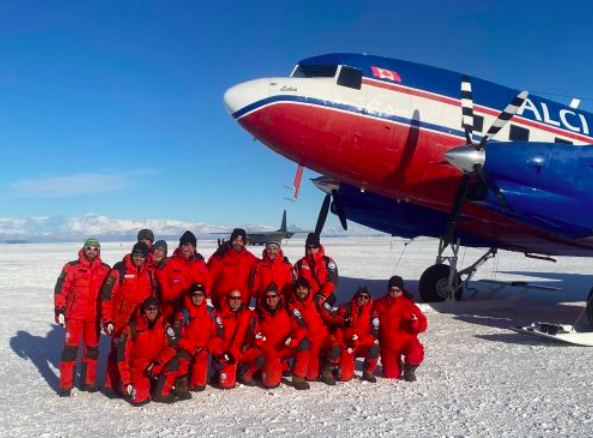
The 38th Italian expedition to Antarctica has officially begun with the arrival of the first technical crew at the Italian Mario Zucchelli station, in the Terra Nova Bay. Funded by the Ministry of University and Research (MUR) as part of the National Research Programme in Antarctica (PNRA), the expedition is managed by ENEA for the logistics part and by the National Research Council (CNR) for the research planning activities.
A total of 240 technicians and researchers will be involved in the 50 research projects selected in the framework of the Programme in various fields of research, mainly atmospheric sciences, geology, paleoclimate, biology, oceanography and astronomy.
The expedition also involves the Armed Forces, with 23 military experts from the Army, Navy, Air Force and Carabinieri, who will work in the field alongside the researchers throughout the expedition. The military experts, within their respective areas of competence, will provide support for external campaigns, naval and underwater activities, helicopter and aircraft operations, weather forecasting and for the completion of the landing strip. Four members of the National Fire and Rescue Service will also take part in the activities.
The research activities will be carried out at the Zucchelli station and at the French-Italian Concordia station, but also on the Italian icebreaker ship Laura Bassi as well as at some Antarctic stations of other countries. The activities on the Laura Bassi – owned by the National Institute of Oceanography and Applied Geophysics (OGS) and managed jointly by CNR, ENEA and OGS – will take place in a single round that will last two months, during which two oceanographic campaigns will be carried out. During the two Ross Sea expeditions, the 28 researchers will conduct the research activities foreseen in the 8 projects funded by the PNRA, along with activities carried out in collaboration with the Italian Navy’s Hydrographic Institute.
Thirteen new winterovers – 5 from the PNRA, 7 from the French Polar Institute (IPEV) and 1 medical doctor of the European Space Agency (ESA) – will remain in complete isolation at the Concordia station from February 2023 until November of the same year as external temperatures of -80°C (apparent temperature up to -100°C) make it impossible to reach the station for almost nine months.
The new mission at the French-Italian station involves 20 research projects, including Beyond Epica Oldest Ice: an EU-funded international research programme that aims to reconstruct the Earth’s climate of the past 1.5 million years. As part of this project, coordinated by the CNR and also involving ENEA and Ca’ Foscari University of Venice, ice coring will begin this year in the field set up at Little Dome C, about 40 km from the Concordia station, with the goal of bringing the first ice samples to Italy by the end of the year.

